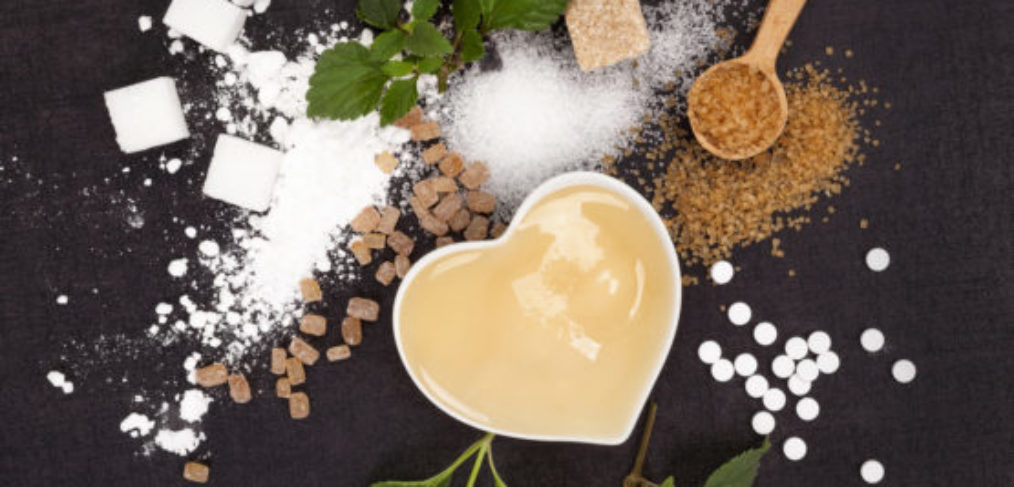Erythritol: What is it, and is it a Healthy Choice?

If you’re following a Keto diet, a Paleo Diet or any diet, chances are strong that you’ve come across a number of low-carb or no sugar added products containing erythritol.
What exactly is it, and is it truly a healthy option?
Ann organic compound, erythritol is a sugar alcohol used as a food additive and sugar substitute (1). At the industrial level, it is produced from glucose by fermentation with a yeast.
And unlike some of the other sugar alcohols such as mannitol, sorbitol and maltitol which are common culprits of bloating and diarrhea, erythritol may not have the same digestive side effects because it doesn’t reach your large intestine in significant amounts.
So does that mean a no-holds barred approach to eating products made with this ingredient?
Not so fast; even though multiple studies on its toxicity and effects on metabolism show that erythritol has been found safe for both human and animal consumption (2), Erythritol is not without side effects.
Typically experienced effects include digestive problems and diarrhea, bloating, cramps, and gas. Additionally, erythritol and other sugar alcohols frequently result in more water in the intestines, causing diarrhea. Nausea and headaches may occur as well (3).
What’s more, higher blood levels of the sugar substitute erythritol are associated with increased belly fat and weight in young adults, according to a study by Cornell University and European scientists (4); one of the very reasons many people may opt for a food made with this ingredient; a part of a healthier diet, often one attached to a weight-loss goal!
Last but not least, GMO corn is the most commonly used source in commercial production of this sugar alcohol, which brings up the adverse effects of GM foods on health: the transfer of antibiotic resistance, toxicity and allergenicity (5).
Bottom line: while erythritol may be a less risky sugar substitute than others that are all too easily available on the market, positioning it as a safe option still feels like a stretch.
A more appropriate take away might be to simply reduce the yearning for the sweet taste of food in the first place, rather than solely looking for less unhealthy sugar options than one might currently be relying upon.
A task easier said than done, for many; approximately 75% of Americans eat excess amounts of sugar — many of whom could be classified as having a sugar addiction (6).
Not that surprisingly when you consider that 60% of packaged foods and drinks that are purchased in American grocery stores include some form of added sugar (7).
Here’s the great news: by making small shifts, such as buying less packaged goods, shopping more at your local farmer’s markets and taking baby steps to include more fresh veggies, natural fats and good proteins, you’ll naturally begin to shift your palate (and therefore related cravings) away from refined carbohydrates naturally.
In other words, having this knowledge can be one more piece to add to the motivation to achieve optimal health, both for yourself and your family… and reduce consumption of all sweet, sugary things whether they contain ‘real’ sugar… or erythritol!
Less is more; at the end of the day, if a sugar alcohol occasionally graces your lips, it’s not necessarily a deal breaker; but being aware to your body’s response to it is the gift, in providing the information you need as to whether or not it’s something you will choose to include in your diet going forward.
(1) https://en.wikipedia.org/wiki/Erythritol
(2) https://www.healthline.com/nutrition/erythritol
(3) https://www.webmd.com/diet/what-is-erythritol
(4) https://news.cornell.edu/stories/2017/05/researchers-id-biomarker-weight-gain-fat-mass-growth
(5) https://www.ncbi.nlm.nih.gov/pmc/articles/PMC3791249/
(6)https://www.healthline.com/health/sugar/americas-deadly-sugar-addiction
(7) https://www.nytimes.com/2016/05/22/upshot/it-isnt-easy-to-figure-out-which-foods-contain-sugar.html




